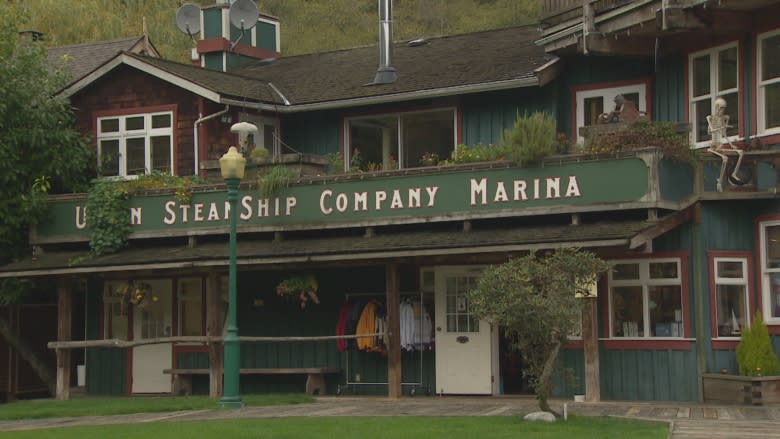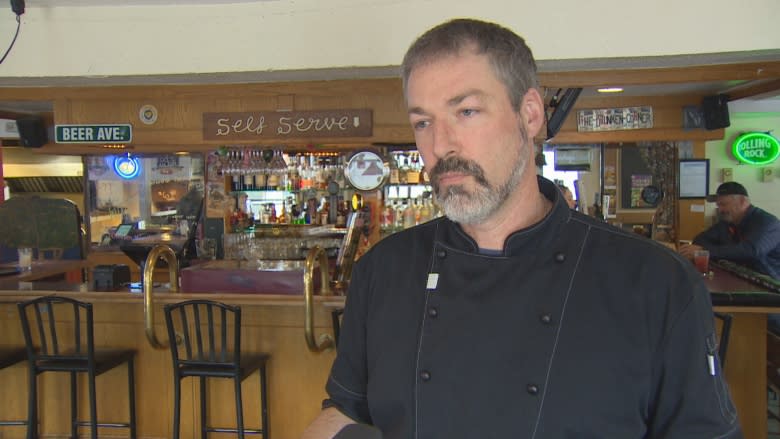Bowen Island business buys boat to house workers
Oydis Nickle and her father, Rondy Dike, have put a lot into their restaurant and marina businesses on Bowen Island but the success they've had has come with a problem.
Many of their workers have struggled to find appropriate housing on the island, which is a 20 minute sailing from Horseshoe Bay, making it a popular day trip.
This past July, Nickle and Dike — who own the Union Steamship Company Marina — had to close on a Thursday because of staffing problems.
"They were working way too much and way too long and we like to take care of our staff and it was just too much," Nickle said.
At the height of the summer Union Steamship had 70 workers.
Nickle and her father say they could have used more but they simply couldn't find them due to a lack of housing on the island.
Eventually Nickle came up with her own solution and bought a nine metre boat to rent out to some of her workers.
"We've also taken some rooms upstairs in our restaurant and have staff living there, but it's not enough," she said.
Now Nickle plans to go further by getting an area of the marina rezoned to allow for six floating duplexes with two living quarters on each of them.
A new pub is also being built on the island to replace the existing one and its owner, Glenn Cormier, has already considered how he will get the workers he needs to run it.
He's building four rental suites as part of the pub for employees.
"It's a very expensive solution to my problem, building out four apartments simply for your staff," he said, adding that he will keep rents to what his workers can afford.
"It gets to the point where you can only do so much when you're working seven days a week and you're having trouble finding staff. It doesn't make it a desirable place for small business owners to set up shop."
Employers around Metro Vancouver say they have had trouble attracting workers due to the high cost of living, in particular the cost of housing.
The B.C. Rental Housing index estimates that 45 per cent of renter households spend more than 30 per cent of their income on rent — the threshold that's considered unaffordable.
With files from Megan Batchelor.





